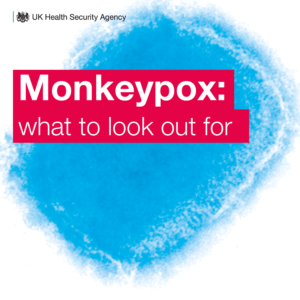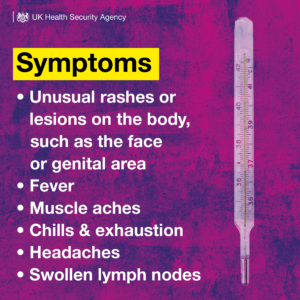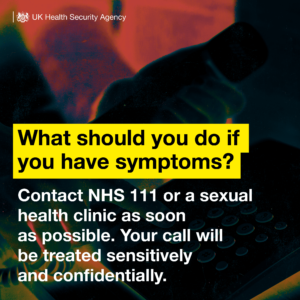Monkeypox is a rare infectious disease, but, as has been recently highlighted in the media, there are a number of cases in the UK and the number is rising.
Monkeypox is a viral infection usually associated with travel to West Africa however cases have occurred in England with no travel links. It is usually a mild self-limiting illness, spread by very close contact with someone with monkeypox and most people recover within a few weeks.
The virus can be spread when someone comes into close contact with an infected person. It can enter the body through broken skin, the respiratory tract or through the eyes, nose or mouth, and it usually takes between five and 21 days for the first symptoms to appear.
Symptoms include
- Unusual rashes or lesions on the body such as the face or genital area
- Fever
- Muscle aches
- Chills and exhaustion
- Headaches
- Swollen lymph nodes
A rash can develop, often beginning on the face, then spreading to other parts of the body. The rash changes and goes through different stages – a bit like chicken pox – before finally forming a scab, which later falls off.
The virus can spread if there is close contact between people through:
- touching clothing, bedding or towels used by someone with the monkeypox rash
- touching monkeypox skin blisters or scabs
- the coughs or sneezes of a person with the monkeypox rash
The UK Health Security Agency (UKHSA) is investigating the recent cases in England. A notable proportion of early cases detected have been in gay, bisexual and other men who have sex with men and so UKHSA is urging this community, in particular, to be alert to any unusual rashes or lesions and to contact a sexual health service without delay.
If you think you have monkeypox symptoms – however mild:
- Contact NHS 111 or call a sexual health clinic immediately. Your call will be treated sensitively and confidentially.
- Avoid close personal or sexual contact with others until you know that this is not monkeypox.
Please contact clinics ahead of your visit and avoid close contact with others until you have been seen by a clinician.
See the NHS website for advice and for updates and the latest case numbers see gov.uk




